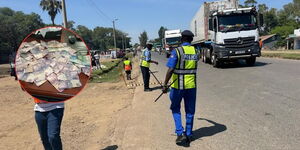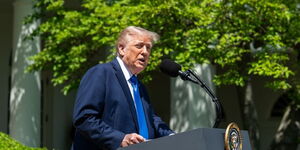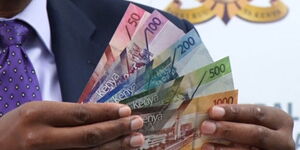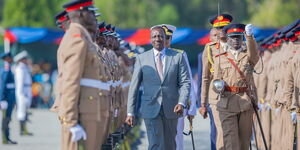The Energy and Petroleum Regulatory Authority (EPRA) advised Kenyans to collect receipts when refilling their Liquefied Petroleum Gas (LPG) at various points in the country.
In a statement dated Saturday, January 27, the authority stated that it was a requirement of the law for dealers to issue clients with receipts.
Further, the receipts should display the name, addresses and telephone numbers of both the retailers and the customers.
The date of the sale, cylinder brand, serial number or quick response code of the cylinder and of the seal also need to be included in the receipts.
"Get an Electronic Tax Register (ETR) receipt for every purchase of a refilled LPG cylinder. By law, every sale of a refilled LPG cylinder is required to capture the details," EPRA stated.
According to the Petroleum Act (Liquified Petroleum Gas) Regulations of 2019, dealers who failed to maintain proper records of their sales face a fine of Ksh50,000.
On the other hand, Kenyans were also urged to be on the lookout for faulty cylinders with potential buyers issued with two distinct features to watch out for.
EPRA advised Kenyans to observe and be weary of cylinders that had dents as they could be faulty.
"Always check for physical damage to the cylinder such as dents and paint peel-off or fading.
"Dents are a sign of the weakening of the cylinder. Peeled-off paint is a sign of cylinder corrosion that further weakens the cylinder," read the statement in part.
A suitable LPG cylinder should not have more than 30 per cent paint corrosion.
Retailers are also required to display their licences issued by the authority for potential buyers to verify the details.
"Observe the separation distance between the cylinder and stove/cooker/oven. A minimum separation distance of 30cm is recommended.
"To report an incident or for more information visit the EPRA website or contact 0709 336 000," read the statement in part.












